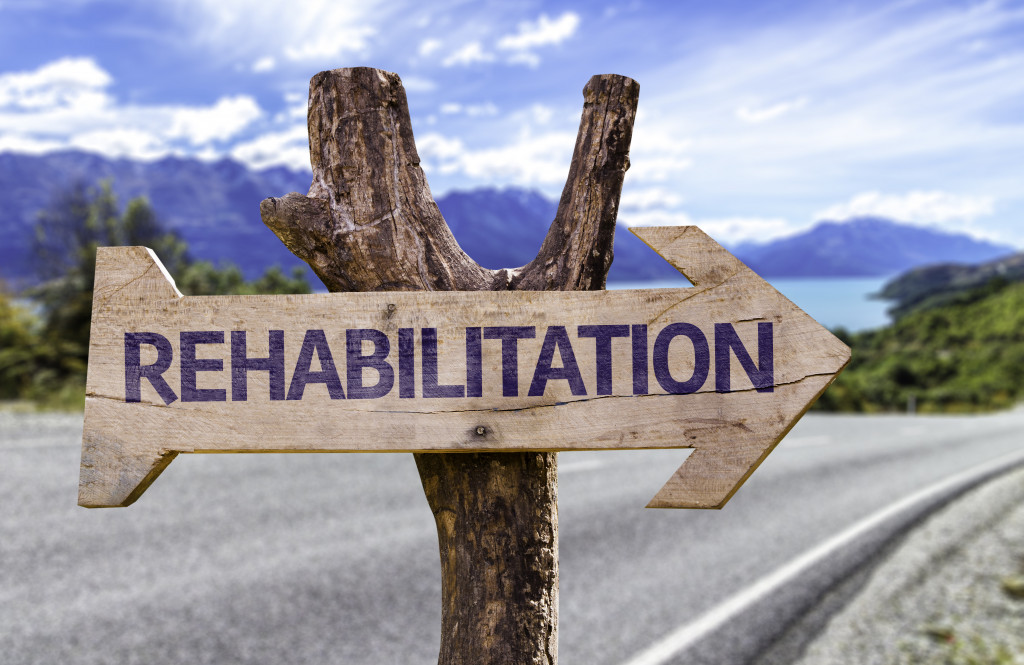Finishing a rehabilitation program is a significant accomplishment worth celebrating. It’s a great feeling when a loved one comes home free from the constraints of rehab and ready to start a new chapter. But apart from the excitement and anticipation of coming home, going back to their normal life is scary and awkward at the same time. In reality, it’s never easy to reintegrate oneself with the people they left behind.
Coming home from rehab is just the start of a lifelong journey toward greater happiness and healing. The recovery phase may be empowering, but it also results in unrealistic expectations. For instance, alcohol rehab programs may be effective in overcoming alcoholism, but the patients will also need further guidance during the recovery period to restore their hope for a healthy future. This means that the family should ensure they are free from the influences and distractions after coming out of rehab.
Knowing what to do after your loved one comes home from the rehab facility will help them during the transition. This is the part where the patients need to make lifestyle adjustments and find worthwhile activities. To help them prepare for their new life following treatment, this article will suggest techniques when helping a loved one recover after coming home from rehab.
Get your home ready
While this sounds strange, but the first step you must do before your loved one comes home is to clean the entire house. Before a loved one returns from rehab, you need to create a safe and comfortable living space for them. This means the house should be free from unnecessary distractions and negative influences that may affect their recovery.
People suffering from active addiction have a habit of hiding illegal drugs and paraphernalia. If they’re previously addicted to heroin, you’ll likely discover syringes inside the air vents, beneath the couch, behind the furniture, backyard, or garage. Every deep corner of the house is a perfect hiding place for alcohol, drugs, and drug-related items.
Conducting a thorough house cleaning has a significant impact on their brief cravings and relapses. Eliminating all sources of temptations and influence before they come back is the best thing you could do for them and also the family. It will not only remove drug-related items around the house but also prevent possibilities for relapse.
Promote healthy routine

Establishing a daily routine is necessary to ensure a smooth and successful recovery. Most patients often have lingering thoughts about their drug abuse history. They let their emotions dwell on daily stressors and negative thoughts along with their old feelings and experiences during the period of their addiction. When left unchecked, these negative patterns will drive them into relapse.
Setting a daily routine is a great way to adopt a healthy lifestyle while in recovery. Following healthy routines includes attending fellowship meetings, going to school, working out at the gym, cleaning the house, and keeping a job. Staying physically and mentally healthy can make a difference between giving in to relapse or living a fulfilling life. Basically, your goal is to keep your loved one busy to direct them on the right path while in recovery.
Practicing open communication is also a part of the daily routine. Active addiction involves deception and isolation, that’s why observing inclusion and open communication should be your top priority. Let them talk about their feelings and thoughts, such as their struggles, potential triggers, and life goals. You may also discuss what they fear about relapse and where they can find help for disorder problems and continued care.
Besides the family, encourage them to interact with other people by joining community functions, religious events, and volunteer work. Using communication as the center of your relationship will help rebuilt trust within the family.
Set healthy boundaries
Healthy boundaries may sometimes appear as strict rules or leaving the comfort zone. Often, families suffer from trust issues along with the fear that their loved ones may return to their drug-seeking behavior.
During the treatment, rehab facilities teach the patient how to adjust and cope with the stress they may go through once they return home. This is very helpful to prevent them from relapsing during recovery. But in most cases, leaving the environment that reminds them of their addiction will decrease the chances of relapse.
Consider sending your loved one to a sober living facility that follows a similar routine with the rehab. Living away from them serves as a healthy boundary to allow them to fully adjust and reintegrate themselves into the world.
It is never easy to manage your expectations after your loved one comes home, but supporting them on their journey toward recovery will make the transition easier. Savor the moments you spend with them and do your best to give compassion and hope. Making the recovery phase as smooth as possible will give them more chances to live a normal life once again.

